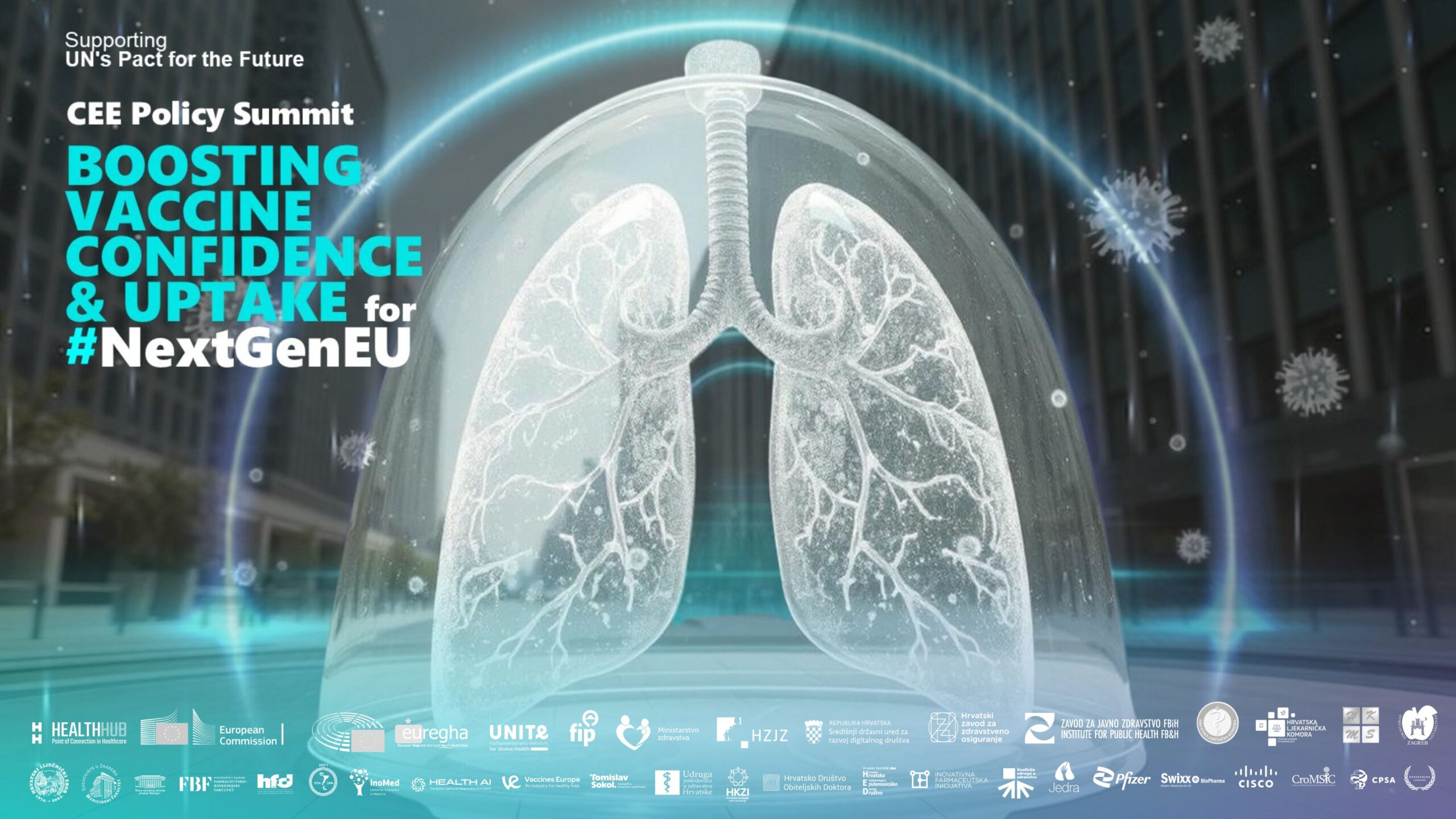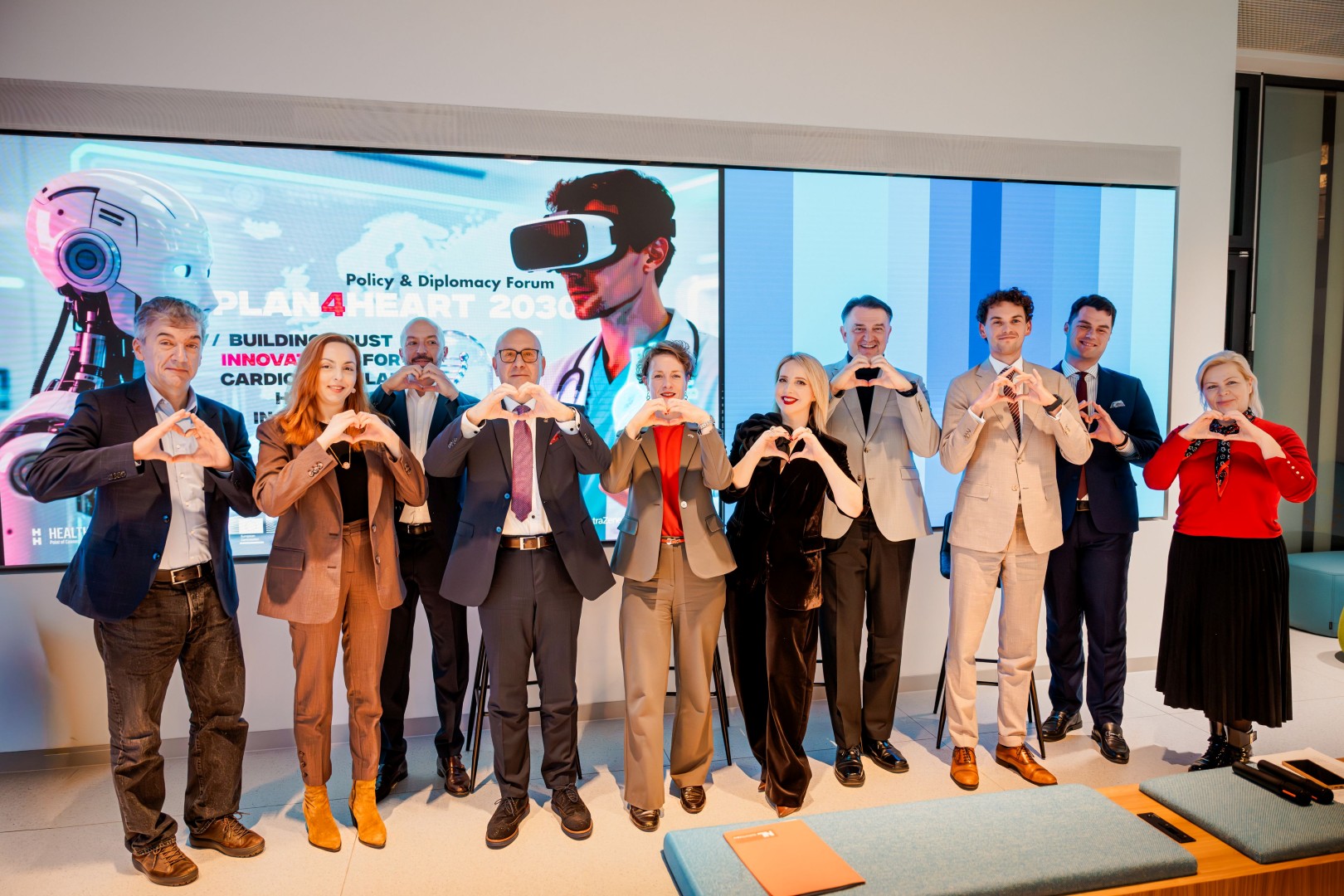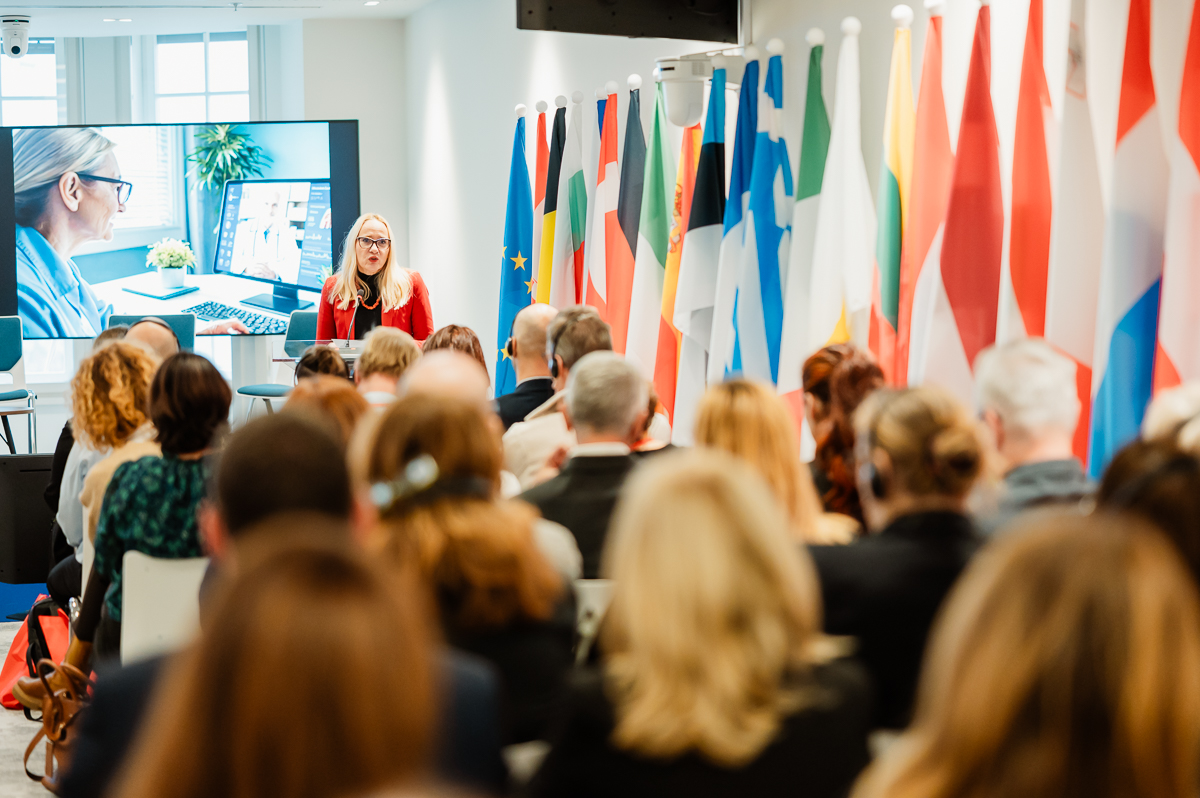Health Hub’s CEE Policy Summit – Dr. Ricardo Baptista Leite (Health.AI & UNITE): “Artificial Intelligence can play a critical role across all of the value chain when it comes to health, including vaccination!”
r. Ricardo Baptista Leite is the CEO at Health.AI, The Global Agency for Responsible AI in Health and also the Founder and President of the UNITE Parliamentarians Network for Global Health, a network of current and former members of parliaments, congresses and senates present in more than 110 countries around the world.
He had an inspirational contribution during Health Hub’s CEE Policy Summit “Boosting Vaccine Confidence and Uptake for #NextGenEU”. We are sharing his extraordinary highlights and thoughts.
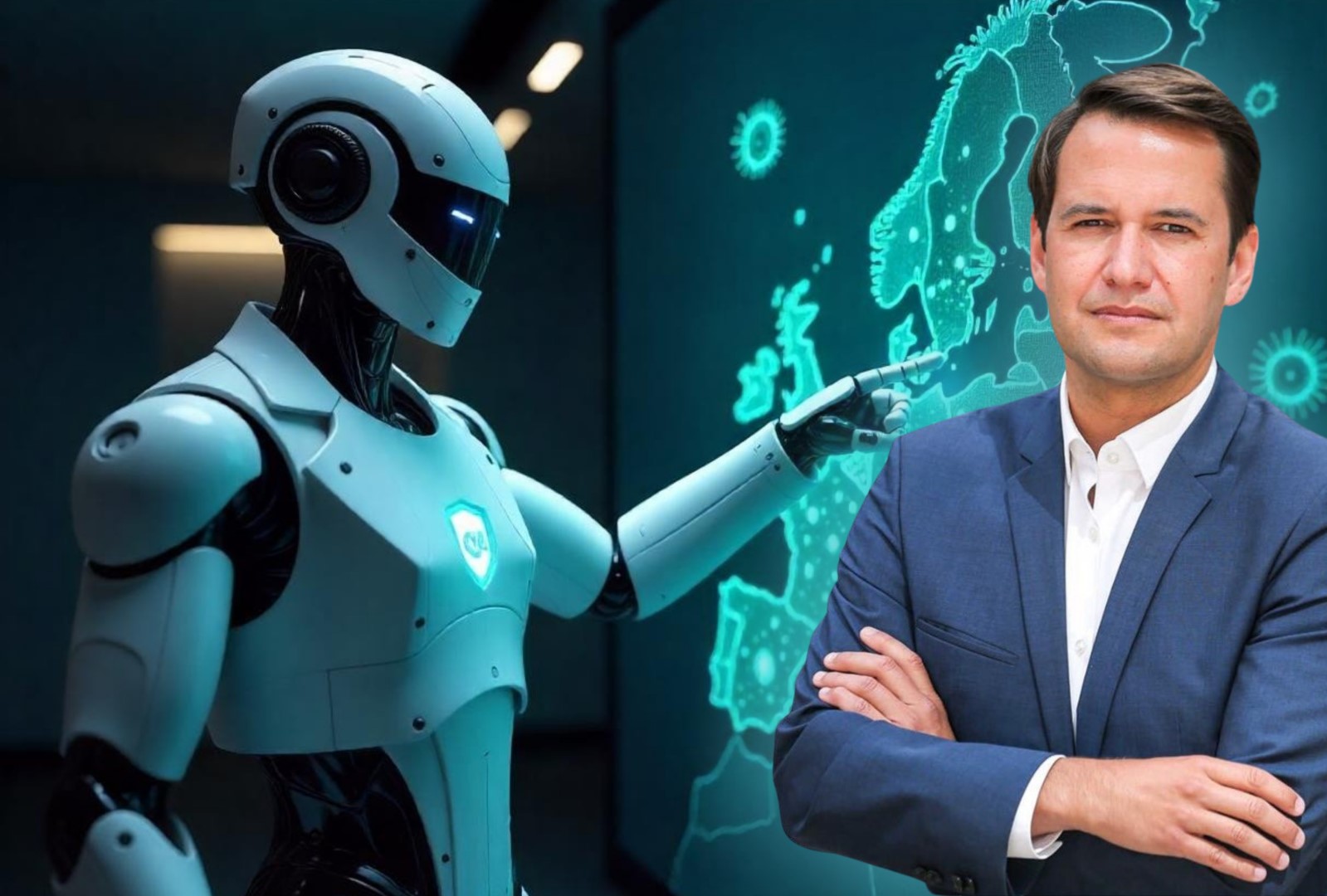
Dr. Ricardo Baptista Leite is the CEO at Health.AI, The Global Agency for Responsible AI in Health and also the Founder and President of the UNITE Parliamentarians Network for Global Health
It is a great honour to be able to speak with you at the Health Policy Summit, precisely on a topic that has been the core of our activities, particularly throughout the UNITE Parliamentarians Network, which is the issue of boosting vaccination confidence and uptake for Next Generation Europe. We know that we went through a pandemic, and the world has not been able to come up with a pandemic agreement as of yet. There are many reasons for this, many of which are related to everything but health, geopolitics in the mix. But the truth is, throughout the pandemic, we saw a surge of vaccine hesitancy that was fueled by misinformation, disinformation, bad actors trying to poison the well, making politics and science in some circumstances almost not compatible. We need to fight back. We need to make sure that science and data are the drivers of good policy. It’s the only way forward. And the truth is, we are seeing major shifts globally that are putting global health public health individuals health at risk. Vaccination is critical as we want to make sure that we are capable of avoiding diseases that can be preventable.
“Throughout the pandemic, we saw a surge of vaccine hesitancy that was fueled by misinformation, disinformation, bad actors trying to poison the well, making politics and science in some circumstances almost not compatible.
We need to fight back.
We need to make sure that science and data are the drivers of good policy.
It’s the only way forward.”
In reality, if you are managing a health system, if you’re working in a health system, you should be doing only one of five things. Either you’re dealing with preventable diseases and therefore you should prevent them. If you’re dealing with curable diseases, you should cure them. If those diseases you’re dealing with are neither preventable or curable, you should be focusing on controlling them or managing them. And finally, if you’re dealing with people who are at end of life, you should be focusing on minimizing suffering and malaise, ensuring as much quality of life and wellbeing up to the end. Or you can actually be doing something else, which is cutting costs to make health systems sustainable.
But if you’re not doing one of these five things, you should ask yourselves, what am I doing? And this is very important to discuss, because right now we have across the world, particularly among the richest countries in the world, including including here in Europe, broken disease systems.

The truth is, what we call health systems are basically machines that were built up throughout the 20th century to react to diseases, to treat patients when they got sick. And actually the financial incentives typically reward sickness if you are able, within your region, within your hospital to get rid of sickness, to make everyone healthy. You actually get less money instead of more.
It is transforming this kind of mindset from one that is reactive to disease, to one that is focusing on lowering the burden of disease, one that is focusing from this transforming a disease system into a system of quality of life and well-being that is critical. We know that in Europe we actually have very long lives, and longevity is very present in most of the European Union. But the truth is, many of those years, especially those later years in life, are not lived with the best quality of life. We could do more. We can do more. And the data supports that.
“It is transforming this kind of mindset, from one that is reactive to disease, to one that is focusing on lowering the burden of disease, one that is focusing from this transforming a disease system into a system of quality of life and well-being, that is critical.”
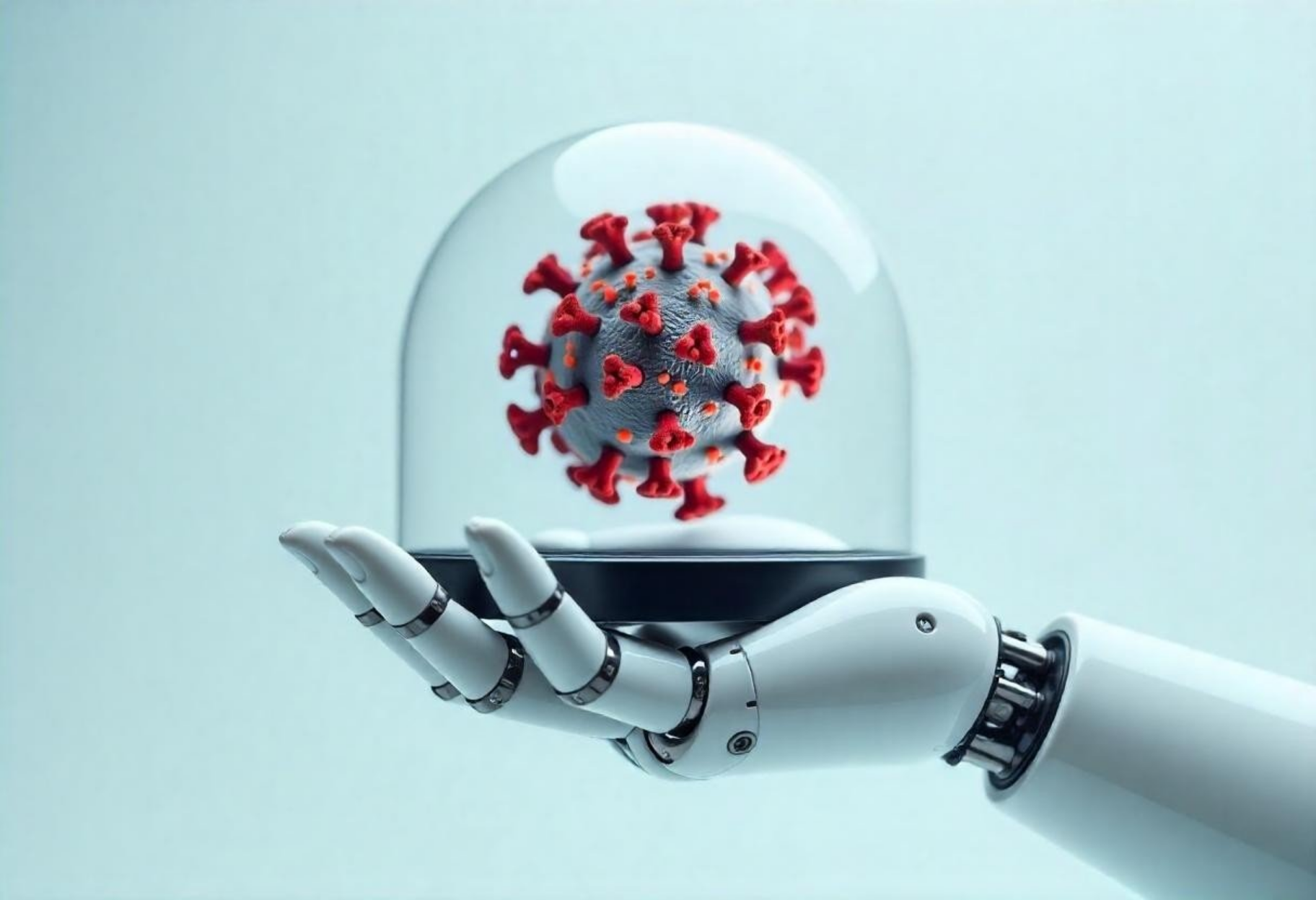
And that leads me to then the issue of artificial intelligence. I work with governments and private and public sector partners from around the world. Given my role at the Global Agency for Responsible AI in Health- Health.AI and what I many times see is because AI has become such a buzzword, if you will. The truth is, many times we see leaders or intermediate managers wanting to encompass and involve AI within within their daily work. But in reality haven’t given it proper thought of why they want to use artificial intelligence. And that’s the question you must ask yourself- Why do you want to use artificial intelligence?
Well, it should contribute to one of those five factors I said before.
Preventing, curing, controlling, minimizing suffering and malaise and cutting costs.
In reality, we can actually use this transformative technology of machine learning and artificial intelligence to help us rethink the way we want to deliver health and care. It’s a huge opportunity for humanity to be able to have this technology at this given moment in time, to help us rethink and redesign the way we are going to deliver services so that we can actually ensure that citizens live longer and healthier lives. That applies to vaccination, no doubt. Who has been supporting immunisation efforts around the world?
“We can actually use this transformative technology of machine learning and artificial intelligence to help us rethink the way we want to deliver health and care.
It’s a huge opportunity for humanity to be able to have this technology at this given moment in time, to help us rethink and redesign the way we are going to deliver services so that we can actually ensure that citizens live longer and healthier lives.”

The Pact for the Future has put as a goal the the ideal of making sure that everyone lives the highest standard of physical and mental quality of life and and well-being that they are capable of living. And we know that vaccinations, as probably the most effective prevention tool out there, are critical for that success. We know that respiratory diseases depend deeply our success to deal with them on vaccination and artificial intelligence can play a play a tremendous role across the board.
First of all, when it comes to research and development, artificial intelligence, we know, can accelerate the development of vaccines. We saw that during COVID-19. But also when it comes to logistics and manufacturing, we can become far more efficient in making sure that vaccines reach everywhere. And we have to learn from the mistakes from the pandemic where many people were left behind.
But we also know when it comes to using Big Data to identify patients who can benefit the most, or citizens at large who are healthy, that can benefit the most from vaccination, and using the artificial intelligence to go through that Big Data, to alert the citizens, to make sure that clinical decision support tools are put out there to support the healthcare workers, to be more efficient in ensuring vaccination reaches those that can benefit the most is another critical factor.
And there are many more applications of AI that as specialists, you can rethink, redesign and make sure to deploy that technology to achieve one of those goals that I mentioned before, which ultimately will lead to lowering the burden of disease, will lead to having a population that is healthier. And so I leave you with these thoughts for your reflection.

I also invite you to join the Healthy Community of Practice, which you can find the application form at Health.AI agency online. And by joining us you’ll be joining a group of governments, regulators, academia, private sector partners, civil society that will be focusing on how are we going to maximize the potential of artificial intelligence in the field of health, particularly focusing on the issues of governance and regulation? We need safe, quality, effective tools to be put into the market.
We need to make sure that post-market surveillance mechanisms are available in the system, to make sure that we can build trust towards the technologies, to make sure that we can use these technologies without the fear of them causing harm, and we can mitigate risks by having a proper governance system.
That is what we are focused on at Health.AI, and we believe that artificial intelligence can play a critical role across all of the value chain when it comes to health, and that includes vaccination. So we need to do more, and we need to do better to make sure that vaccination reaches everyone who can benefit from it. And that deals from research and development to logistics, to manufacturing, to making sure that vaccines are available in the clinical setting and also combating misinformation and disinformation, because we need to make sure that citizens can trust again in the science that is behind all of the medicine and scientific discoveries that we have made over decades, and that have saved millions and millions of lives and have contributed to improving the lives of billions of citizens across the planet.
This is an opportunity for Europe to lead, and we’re proud to be part of that journey with you.
www.healthai.agency
www.unitenetwork.org
